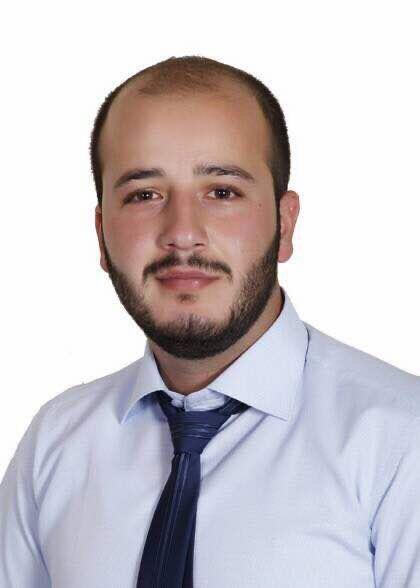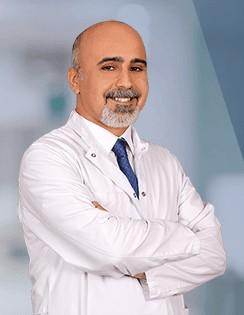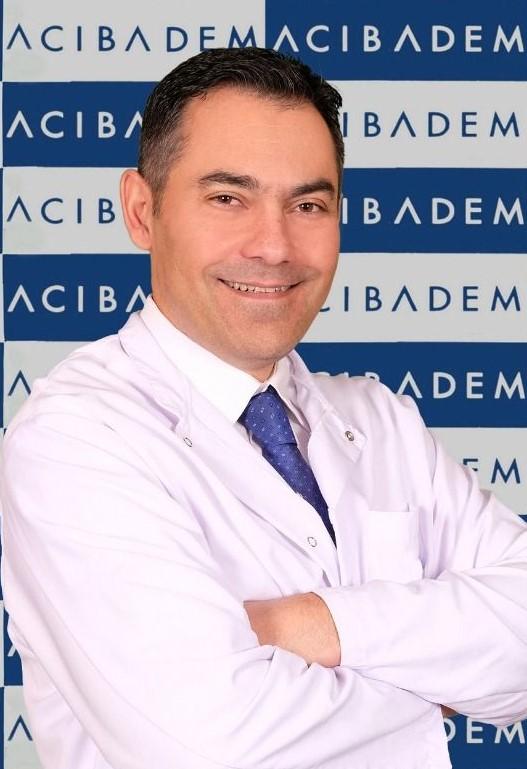Liver Transplantation
in the Era of COVID-19
Webinar
Friday March 26, 2021
17:00 - 19:00/Time Zone UTC+2
Free Registration
Speakers and Abstracts
(Speakers are listed in the order of the programs’ sessions)
17:05 - 17:20 Interactive Clinical Case Scenarios

Salam Abou Rafeh, MD
Dr. Salam Abou Rafeh is currently a PGY V General Surgery resident at the Lebanese American University (LAU) Gilbert and Rose-Marie Chagoury School of Medicine in Beirut, Lebanon. Dr. Abou Rafeh gradated with MD from LAU in 2015. Subsequently, he joined the General Surgery residency program at LAU and will complete his residency diploma in June 2021. Dr. Abou Rafeh plans on completing his fellowship specialty training in Colorectal Surgery. Dr. Abou Rafeh has published a number of case reports within the general surgery field.
Abstract
Dr. Abou Rafeh will discuss two patient cases that would benefit from undergoing transplantation surgery.

Ahmad Moussawi, MD
Dr. Ahmad Moussawi is currently a PGY 3 Internal Medicine Resident at the Lebanese American University (LAU) Gilbert and Rose-Marie Chagoury School of Medicine in Beirut, Lebanon. Dr. Moussawi graduated with MD from LAU in 2018. Subsequently, he joined the Internal Medicine Residency Program at LAU and will complete his residency diploma in June 2021. Dr. Moussawi plans on obtaining his fellowship specialization in Gastroenterology with special interest in Gastroenterology and Hepatology.
Abstract
Dr. Moussawi will discuss two patient cases that would benefit from undergoing transplantation surgery.
17:20 - 17:35 International Liver Transplant Patient

Ali Ozer, MD
Dr. Ali Özer is a general and transplantation surgeon. He graduated with an M.D. from the Ankara University School of Medicine in 2005. In 2005, Dr. Özer moved to Germany to practice as a general surgeon at Klnikum Lippe Urologische Klinik Detmold. Upon his return to Turkey, he continued his general surgery residency at the Uludag University School of Medicine and afterwards practiced general surgery at the Akçakoca Public Hospital. Currently, he serves as a general surgeon and transplant surgeon in Acıbadem Atakent Hospital Kidney Transplant Center and Liver Transplant Center, Istanbul – Turkey.
Dr. Özer has published many scientific journals in peer-reviewed publications on general surgery and transplantations.
Abstract
Assessment of a patient and deciding the necessity of liver transplantation is a complex and well designed procedure which requests strict steps. When an international patient applies to our transplantation center, we generally follow three main steps for patient: first we decide the need of transplantation, second we evaluate if there is a contraindication for transplantation and third we assess if special precautions should be taken into consideration.
Beyond any doubt, a clear and detailed history of the patient, current laboratory results and images of radiological examination (favorably contrast CT angiography) are mandatory to make a healthy decision for patient. We prefer to see CT-scan of patient instead of report of them to evaluate the vascular structure of the patient. Of course, we demand additional tests in special conditions. For example, PET-CT, tumor markers etc. in patients with HCC.
We may only perform living donor liver transplantation for international patients in association with our legislation system. We suffered the shortage of organ donation in our country. This unfortunate situation makes Turkey, one of the most experienced country in live donor liver transplantations. A definitive international consensus has been composed to emphasize the importance of evaluating the psychosocial and medical suitability of a live donor.
17:35 - 17:45 COVID Vaccination Awaiting Liver Transplantation and Complications

Remzi Emiroglu, MD
Dr. Remzi Emiroğlu is an expert liver transplant surgeon. He is a well-reputed and sought-after medical expert. He has more than 25 years of clinical and surgical experience. Dr. Remzi Emiroğlu graduated with M.D. from the Uludağ University Faculty of Medicine in 1989 and worked as a general practitioner at Buca SSK State Hospital between 1990-1992. Dr. Emiroğlu completed his specialty training in 1994 at the Training and Research Hospital General Surgery Clinic in Ankara, Turkey. Subsequently, he continued his surgical experience at Başkent University Faculty of Medicine between 1998-2004. Currently, he serves in Acıbadem Atakent Hospital Kidney Transplant Center and Liver Transplant Center, Istanbul - Turkey. Dr. Emiroğlu is a member of numerous international medical societies and has published over numerous scientific journals on transplantations, specifically liver transplants.
Abstract
Despite strict rules, the number of COVID infected patients is increasing and the length of pandemic seems to continue. Therefore, vaccination is obviously the best solution to overcome this problem.
Timing of vaccination and selecting the type of vaccine in patients who will perform or have already performed transplantation is worthy to discuss in related with the special features of these patients. According to our limited information about COVID and large experience in vaccination, some recommendations were constituted in time.
For transplant candidate patients, vaccination is always recommended before transplantation. The immunosuppressive drugs using after transplantation suppresses the immune system who can no longer recognize the antigen given by the vaccine and fails. So, for patients with end stage liver and renal disease, vaccinatıon is strongly recommended before transplantation.
For transplanted patients, the vaccination is recommended minimum 6 or 12 months later and it is even better if the vaccination can be done after Immuno-suppresive drug doses are decreased or stopped such as MMF in liver transplantation group.
Live vaccines are not recommended because of the risk of uncontrolable growth of the pathogen. These are 3 types of vaccines in the market. The fırst one ıs from Sinovac. It is produced from death viruses and consist death antigens of the COVID-19 virus. Although there are rumors that it is less effectıve to create immune response it can be used safely among the transplant patients. The second type consist m RNA of the vırus and produced by Biontech and Moderna. These vaccines are more effective and safe. The third type ıs produced by Sputnik and Astra Zeneca which consist the m RNA of the vırus embedded to a live virus or bacteria. Although there is no exact clue for the effectivity of these vaccines first and second groups seems to be preferable in transplant patients.
18:00 - 18:10 Liver Failure into Transplant Success - Facts and Statistics

Hamdi Karakayali, MD
Dr. Hamdi Karakayali is an expert kidney transplant and Hepatopancreatobiliary surgeon in Turkey. He has more than 30 years of clinical and surgical experience. Dr. Hamdi Karakayali completed his M.D. at the Hacettepe University Faculty of Medicine in 1988. He then commenced his specialty education as a research assistant in the Department of General Surgery, Hacettepe University Faculty of Medicine and subsequently obtained his General Surgery Specialist in June 1994, where in continued his practise of general surgery. Dr. Karakayali was designated as the consultant to the Scientific Committee for Liver and Kidney Transplantation for the Ministry of Health in Turkey from 2002 to 2010. He then went on to head the HPB Unit at Ozel Gaziosmanpasa Hospital - Organ Transplantation Center until 2013 and afterwards became the HPB Director of Medipol Mega University Hospital - Organ Transplant Center until 2017.
Currently, Dr. Karakayali serves as the Director of the Liver and Kidney Transplantation Center at the Acibadem Hospital. He has more than 270 scientific journals published and is a member of numerous international medical societies.
Abstract
Liver transplantation is obviously the best treatment option for patients with acute fulminant liver failure, decompensated cirrhosis, some metabolic or hereditary liver failures or even for the patients with hepatocellular carcinoma. Unquestionably, deceased donor liver transplantation is the preferred procedure. Unfortunately, the problem is the shortage of organ donations. In Turkey despite all efforts to improve donation rates, it is still not more than 7 per million population. In a country with 80 million population, it means almost 550 donors in a year. However, the need for liver transplantation is far more than this number. Actually, this undesired reality makes us one of the most experienced country in live donor liver transplantations (LDLT).
There are certain advantages of using live donors for those desperate group of patients, as the grafts are in excellent condition with minimal cold ischemia time. It also provides time for thorough donor screening and ideal timing for transplantation, it also decreases the anxiety during the time on waiting list. However, the ethical, medical and the legal regulations are indispensable and the safety of donors and donor rights should have the priority.
As the Acibadem Health Group, we are performing the liver transplantations in 2 of our hospital, which are in Istanbul and Bursa. Since 2012, we performed a total of 956 liver transplantations, in which 784 of them were from live donors. There were 77 pediatric recipients and most of them were very small babies under the age of one. A hundred-twenty of them were patients coming from different countries. Mean age of the patients were 54.8 (range between 4 months - 71 years). The overall survival rate is more than 90%.
With the gaining experience in LDLT procedure, challenging anatomical variations like multiple arteries, portal vein trifurcations, multiple hepatic drainage veins or the multiple bile ducts do not consist of an obstacle anymore. Besides that, very small babies, liver and kidney combined transplantations, portal vein thrombosis even the complete ones, paired liver transplantations are the most significant examples of challenging cases that we can overcome with live donor liver transplantations.
In conclusion, LDLT continues to be the life-saving option in countries without satisfactory deceased donation rates.
18:10 - 18:20 Post-Operative Follow-up and Management

Tongu Utku Yilmaz, MD
Dr. Tonguç Utku Yilmaz is a general and transplantation surgeon. He graduated with M.D. from the Gazi University School of Medicine in 2003 and continued his general surgery residency at the Kocaeli University School of Medicine. Dr. Yilmaz underwent further training in Liver Transplantation and Liver Pancreatic Biliary Tract Surgery at Mayo Clinic in the United States and St. Mark’s Hospital in England.
Currently, Dr. Yilmaz serves as a general surgeon and transplant surgeon in Acibadem Atakent Hospital Kidney Transplant Center and Liver Transplant Center, Istanbul – Turkey. Dr. Yilmaz has published many scientific journals in peer-reviewed publications on general surgery, HBP, and transplantations.
Abstract
Liver transplantation is a complex treatment composed of preoperative evaluation, operation an postoperative follow-up. Success of a transplantation is depend on success of all steps. Here in this presentation, we’ll mention the postoperative follow-up and management of liver transplantation.
Methods: The main points in the postoperative period are prevention of complications, be aware of possible complications and treatment of complications. These complications can be grouped as surgical, infectious, oncological, recurrences of primary diseases, Quality of life. We closely follow-up the patients according to these complications. According the patient’s primary diseases, demographic information, operation type and infectious status of patient the follow-up periods are determined.
Results: The patients liver function test are closely followed in early postoperative period in order to rule out possible vascular pathology related complications, rejection risks, infectious diseases, drug toxicities. Radiological evaluation is mostly preferred method for differentiation of the risks. In early late period, infectious complications, biliary complications take importance. For this reason, ultrasound, magnetic resonance, endoscopic retrograde cholangiopancreatiography can be used. Again, infectious complications still a risk factor. In late period, recurrence of primary diseases and drug related oncological risks, drug related metabolic diseases should be evaluated.
Conclusion: Although most of patients believe transplantation is only an operation, postoperative period follow-up and treatment is the most difficult period. Because this period is long lasting, wanting patience. Also management of complications are more difficult than doing operation